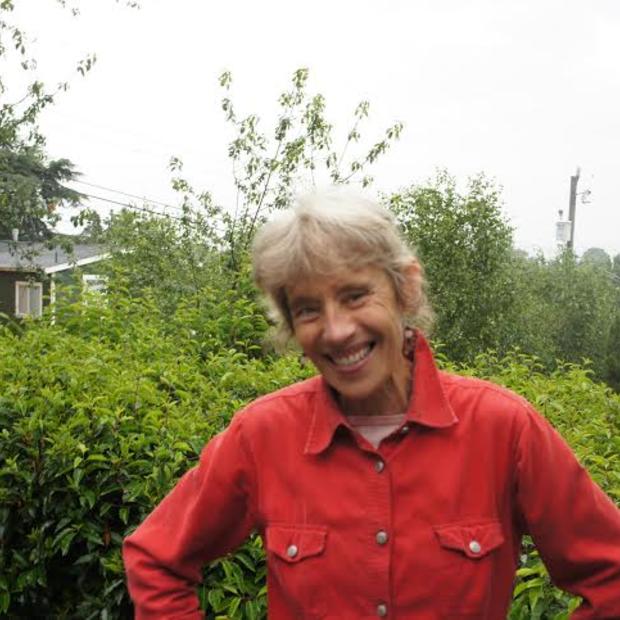With election year climate change debate reduced to six-word shout-outs in the hottest recorded year in U.S. history, it was no small surprise when a local clean energy advocate recently received a national award for his work. KC Golden, a policy analyst with Climate Solutions, was awarded $250,000 dollars from the Heinz Foundation last month. The credit, says Golden goes to what he calls ‘the whole ecosystem of people and organizations in the Northwest.'
“But I want to really strongly emphasize we’re not doing it to just lower the northwest carbon footprint," he says. "We’re not doing it to just hoist our own green flag. We’re doing it to catalyze a global transition in our energy economy because nothing less will do. Nothing less will save the climate.”
While climate change typically ranks below such issues as the economy among voters, polling earlier this year by Yale University and George Mason University found that 84 percent of registered Democrats, 68 percent of independents and 52 percent of Republicans think global warming should be a priority. The bigger problem, says Golden, is the gap between public will and what leaders and public institutions are delivering.
“Where we need to go from here is engaging ourselves and our leaders in a much stronger, more determined, more resolute solution movement," Golden says. "That’s the path out of denial — not fighting with the Heartland Institute about whose science is right.” The Heartland Institute, a conservative and libertarian think tank, promotes skepticism about man-made climate change.
The solution movement Golden has been engaged with has helped Seattle City Light become the first major carbon free electric utility in the country, helped launch the U.S, Mayors Climate Protection Agreement under former Mayor Nickels and jumpstarted Initiative 937, which set statewide caps on the amount of pollution utilities can emit.
Climate Solutions, the non-profit Golden works with, promotes multiple clean energy projects: New Energy Cities, Kilowatt Crackdown, and Repower Bainbridge among them. But real “climate solutions”, Golden says, will take a million of these so-called solutions. It’s a slow and steady movement requiring decades of work.
Take the work of the NW Energy Coalition for example: energy efficiency programs, public and private solar and wind projects, geothermal and alternative aviation fuels. “It’s only real in so far as it becomes a new organizing principle for how we build our economy in the future," Golden says. "It’s not a little side show. It’s not just cutting the ribbons on the solar factory — as important as that is. It’s a new way of organizing prosperity in the Pacific Northwest.”
This new way of organizing, Golden says, also means the Northwest will need to stand up to the fossil fuel industry, which plans to export coal through the Northwest to Asia and expand Alberta tar sands pipelines into the U.S. “We just can’t have that. We don’t have enough time. We don’t have enough money to simultaneously play this slow game of climate solutions and invest in losing the game by locking in all this fossil fuel dependenece.”
Golden knows it won’t be easy. The fossil fuel lobby and climate deniers contribute to both parties. Obama gave a shout out to global warming in his acceptance speech at the Democratic National Convention last month, declaring climate change was not a hoax. But his energy policies are “all of the above” — tar sands expansion, clean coal and Arctic drilling. While Romney once said that he understood climate change was caused by human actions, he has now shifted to the scientifically disproven stance that “we don’t know what’s causing climate change.”
One answer for Golden is to continue to build the reach of the climate solutions movement. He serves on the board of 350.org, which is committed to building a global movement to solve the climate crisis. 350.org’s “do the math tour” begins November 7th in Seattle and will make its way across the country for the next 25 days. “We’re going to focus a lot on separating ourselves financially and institutionally from the fossil fuel juggernaut," Golden says. "Even while we can’t yet get our public institutions to do what they need to do at the policy level, we can start to have a social referendum on their license to operate in our culture.”
The other daily task is to break fossil fuel dependence in ways both small and large in our homes, communities and regions. “That’s what this slow game of climate solutions is all about," he explains. "We gotta do both at the same time.” We check the time. The conversation could go on, but Golden has an appointment. He hops on his bike — a logical choice for someone trying to wean the world off of fossil fuels.
Green Acre Radio is brought to you with support from the Human Links Foundation. Engineering by CJ Lazenby.


